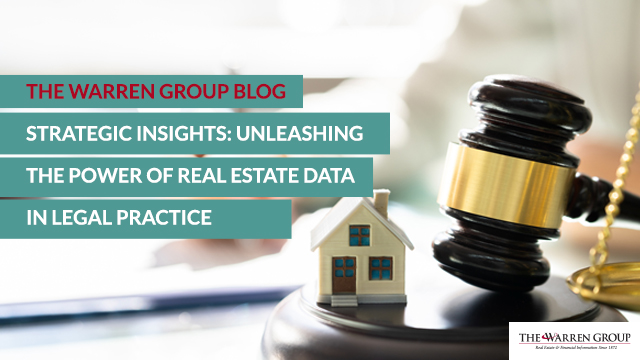In the ever-evolving landscape of real estate law, legal professionals are increasingly turning to data-driven insights to inform their strategies and decision-making processes. The intersection of real estate, mortgage, and foreclosure data has become a powerful tool for attorneys, enabling them to navigate complexities, identify trends, and provide clients with informed counsel. In this blog post, we explore how legal professionals can leverage real estate data, specifically focusing on its relevance to mortgage professionals and the intricacies of foreclosure cases.
Real estate data serves as the backbone for mortgage professionals seeking to mitigate risks, evaluate property values, and ensure compliance with regulatory frameworks. By harnessing comprehensive real estate data, legal professionals can provide valuable insights to mortgage lenders, originators, and servicers. Here are some key ways in which real estate data benefits mortgage professionals:
Risk Assessment – Evaluate property values and market trends to assess the risk associated with mortgage loans. Analyze historical data to identify potential economic downturns or fluctuations in property values.
Due Diligence – Conduct thorough due diligence by examining property records, ownership history, and encumbrances to ensure a clear title. Verify property information, such as square footage and zoning restrictions, to avoid legal complications.
Compliance and Regulations – Stay abreast of local, state, and federal regulations impacting the mortgage industry. Utilize real estate data to ensure compliance with laws governing lending practices, disclosure requirements, and fair housing.
Foreclosure Data: Navigating Legal Complexities
Foreclosure cases require a deep understanding of real estate dynamics, mortgage instruments, and the intricacies of legal procedures. Legal professionals can employ foreclosure data to streamline processes, enhance litigation strategies, and protect the rights of their clients.
Case Evaluation – Analyze foreclosure data to evaluate the circumstances leading to default and assess the viability of foreclosure proceedings. Identify potential defenses or irregularities in the foreclosure process through a detailed examination of historical data.
Market Analysis – Assess local real estate market conditions to determine the impact on property values and foreclosure timelines. Use data to formulate strategies for maximizing recovery for lenders or negotiating favorable outcomes for borrowers.
Trends and Precedents – Stay informed about foreclosure trends and legal precedents to anticipate challenges and opportunities. Leverage data to craft persuasive legal arguments and counterarguments in foreclosure litigation.
Real estate data for legal professionals must harness the power of data to enhance their practices and deliver optimal outcomes for clients. Real estate data is not merely a collection of numbers and statistics; it is a valuable asset that empowers attorneys to make well-informed decisions, navigate complex legal scenarios, and stay ahead of industry trends. By integrating real estate, mortgage, and foreclosure data into their legal strategies, professionals can ensure they are well-equipped to address the multifaceted challenges of the modern real estate landscape.


Recent Comments